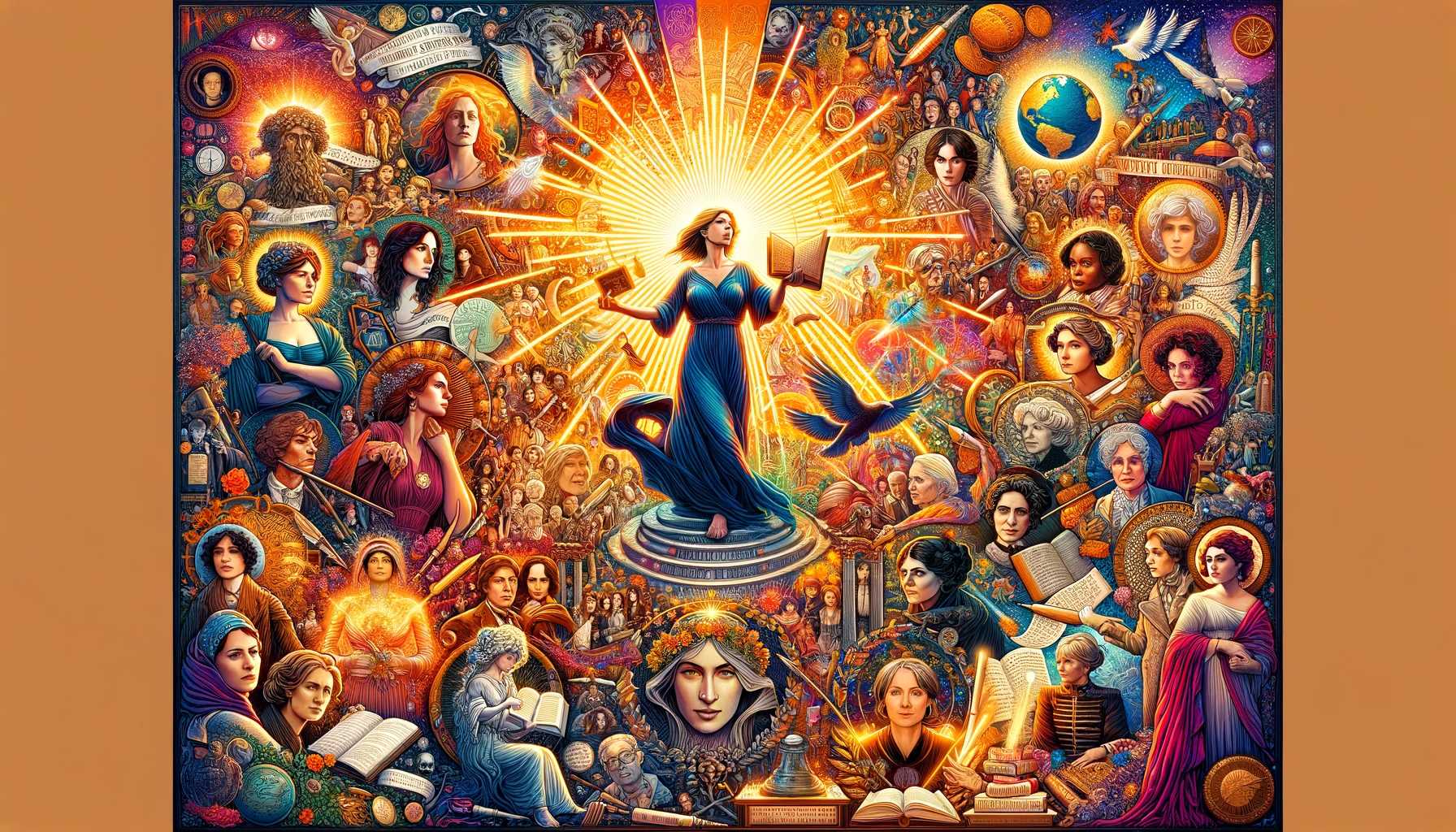Shattering Stereotypes: The Empowering Role of Women in Literature
Introduction
Women have long been central figures in literature, shaping narratives, challenging societal norms, and inspiring readers with their strength and resilience. From ancient myths and legends to contemporary novels and poetry, the role of women in literature has evolved and expanded, reflecting changing attitudes and values across cultures and generations. In this blog post, we'll explore the multifaceted role of women in literature, examining how they have been portrayed, celebrated, and empowered throughout history.
Historical Perspectives: From Goddesses to Heroines
Throughout history, women have played a variety of roles in literature, often reflecting the cultural values and expectations of their time. In ancient mythology, women were often depicted as powerful goddesses and divine beings, embodying qualities such as wisdom, beauty, and fertility. Figures like Athena, Aphrodite, and Hera were revered for their strength and influence, shaping the destinies of gods and mortals alike.
As literature evolved, so too did the portrayal of women. In medieval romances and epic poems, women were often cast as damsels in distress or objects of desire, their stories overshadowed by the exploits of male heroes. However, there were exceptions to this rule, with characters like Guinevere, Joan of Arc, and Cleopatra defying expectations and asserting their agency in a male-dominated world.
The Rise of Feminist Literature
The feminist movement of the 19th and 20th centuries brought about a profound shift in the portrayal of women in literature. Writers like Mary Wollstonecraft, Virginia Woolf, and Simone de Beauvoir challenged traditional gender roles and advocated for women's rights and autonomy. Their works explored themes of identity, sexuality, and the social construction of gender, paving the way for a new era of feminist literature.
In novels like "Jane Eyre" and "Pride and Prejudice," authors like Charlotte Brontë and Jane Austen presented readers with complex and independent female protagonists who defied societal expectations and pursued their own paths to happiness. These characters were not defined by their relationships with men but by their intelligence, resilience, and strength of character.
Moreover, the emergence of the feminist movement gave rise to a new wave of literature that centered on women's experiences and perspectives. Writers like Margaret Atwood, Toni Morrison, and Alice Walker explored issues such as race, class, and sexuality through the lens of female protagonists, shedding light on the intersectionality of oppression and the importance of solidarity among women.
Contemporary Perspectives: Diverse Voices and Representation
In recent years, there has been a growing recognition of the need for diverse representation in literature, including the voices and experiences of women from marginalized communities. Authors from around the world are challenging stereotypes and amplifying the voices of women who have been historically silenced or overlooked.
In novels like "The Color Purple" by Alice Walker and "The God of Small Things" by Arundhati Roy, authors explore the lives of women of color in the context of colonialism, racism, and patriarchy. These works offer readers a glimpse into the struggles and triumphs of women who navigate intersecting systems of oppression with grace and resilience.
Furthermore, the rise of young adult literature has provided a platform for stories that celebrate the strength and agency of young women. Characters like Katniss Everdeen from "The Hunger Games" series and Hermione Granger from the "Harry Potter" series have become role models for a new generation of readers, inspiring them to stand up for their beliefs and fight for change.
Empowerment Through Storytelling
At its core, literature has the power to empower and uplift women, providing them with a platform to tell their stories, challenge stereotypes, and envision new possibilities for themselves and future generations. Through literature, women have the opportunity to see themselves reflected in the stories of others, to find solace and inspiration in the words of writers who have walked similar paths.
Moreover, literature has the power to spark conversations and catalyze social change, challenging readers to confront their own biases and assumptions about gender and identity. By amplifying diverse voices and experiences, literature can help break down barriers and foster greater understanding and empathy among readers of all backgrounds.
Moreover, the impact of women in literature extends far beyond the pages of books; it permeates into our collective consciousness, influencing cultural attitudes and societal norms. Through the power of storytelling, women have the ability to shape narratives, challenge prevailing ideologies, and advocate for social change. Their stories serve as a testament to the resilience of the human spirit and the enduring quest for equality and justice.
One of the most significant contributions of women to literature is the amplification of marginalized voices and the exploration of intersectional experiences. Women of color, LGBTQ+ women, disabled women, and women from other marginalized communities have long been underrepresented in mainstream literature. However, through their writing, authors like Audre Lorde, Chimamanda Ngozi Adichie, and bell hooks have brought attention to the unique struggles and triumphs of these communities, shining a light on issues of race, sexuality, and disability.
Furthermore, the role of women in literature extends beyond the realm of fiction; it encompasses poetry, essays, memoirs, and other forms of creative expression. Women poets like Maya Angelou, Sylvia Plath, and Rupi Kaur have used their words to capture the beauty and complexity of the female experience, exploring themes of love, loss, identity, and empowerment. Their poetry serves as a source of inspiration and solace for readers around the world, offering a glimpse into the innermost thoughts and emotions of women across generations and cultures.
In addition to their creative contributions, women have also played a crucial role in shaping the literary landscape as editors, publishers, critics, and scholars. Through their work behind the scenes, they have championed emerging voices, challenged literary conventions, and fostered greater diversity and inclusion within the publishing industry. Women-led initiatives like VIDA: Women in Literary Arts and Women Writers Project have worked tirelessly to promote gender parity and amplify the voices of women writers in an industry that has historically been dominated by men.
Ultimately, the role of women in literature is not just about representation or recognition; it's about empowerment and liberation. By reclaiming their stories and asserting their voices, women have the power to challenge stereotypes, break down barriers, and transform the world around them. As readers, writers, and advocates, we have a responsibility to uplift and celebrate the diverse voices and experiences of women in literature, ensuring that their stories are heard and their contributions are valued now and for generations to come. In doing so, we can create a more inclusive and equitable literary landscape that reflects the richness and diversity of the human experience.
In conclusion, the role of women in literature is multifaceted and ever-evolving, reflecting the complexities of gender, identity, and power in society. From ancient myths to contemporary novels, women have been central figures in literature, shaping narratives, challenging stereotypes, and inspiring readers with their strength and resilience. As we continue to celebrate and uplift women's voices in literature, we have the opportunity to create a more inclusive and equitable world for all.







